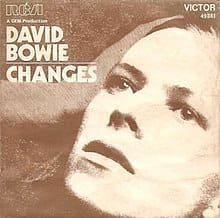We scour 100+ sources daily
Read by CEOs, scientists, business owners and more
3.5 million subscribers
If you can kill a snake with it, it ain’t art.
Howdy, this is UniScoops! We make your brain cells dance with joy and you don’t even need to remember those ballet lessons from ten years ago.
So, without further ado…
Here’s a taste of what we’re serving today:
God and Omniscience: Do I really have the freedom to choose what I have for breakfast? 🤔
PLUS: Swiftonomics, Cultural Transmission, and String Theory.
PHILOSOPHY
God and Omniscience: do I really have the freedom to choose what I have for breakfast? 🤔
Omniscience (knowing everything) is supposed to be one of God’s properties. Makes sense, right? You’d think that a supreme being should know absolutely everything: the meaning of life, where Ryan Gosling is right now, and what I’m going to have for breakfast tomorrow. However, this raises a lot of problems, which we are going to discuss below…

💡 Things to consider
Freedom and Foreknowledge: According to one plausible line of thought, God knows everything that will happen in the future (as he knows everything). This seems to imply that we don’t really have freedom in any substantial sense. Take, for example, my choice of brekkie for tomorrow morning. If God already knows what I’m going to have for breakfast, did I really have the free will to choose it? Of course, I had the two options in front of me, but if I was necessarily going to choose one over the other, it seems that my freedom isn’t freedom at all. What if God doesn’t know exactly what you’re going to pick, but knows you so well that he has a really good idea how you think and therefore what you’d be very likely to pick. How does this change the discussion?
Immutability: Immutability is the property of being unchanging. Most people would argue that God is immutable: if God is the most perfect thing available, then why change, right? If I were God, I sure wouldn’t: if it ain’t broke, don’t fix it! But, omniscience seems to contradict with this property. How, you might ask? It’s all about God knowing something in particular that requires a change. Take, for example, the statement ‘the lesson is starting now’. We’ve all been there: we didn’t realise that it’s already 9am and we had the sudden fear of realising that the lesson is happening RIGHT NOW! For God to properly know this statement, it seemed that he would have to go from the state of not knowing something (i.e., that the lesson is now) to then knowing something. But hang on… I thought God knew everything, so how could he forget things like us silly humans?

David Bowie’s ‘Changes’ shouldn’t apply to God though…
‘Cambridge Changes’: Peter Geach makes the distinction between a real change, as opposed to what he calls a ‘Cambridge change’, which is not a real change at all. A Cambridge change occurs when a property is true of an object at one moment but is not true of it at the next moment, not because the object itself has changed, but because something around it has changed that makes a property true. For example, I could say that my friend Barnaby is taller than me, however - due to some miraculous tablets I bought from Amazon - the next moment, my height increased by a foot. After having digested said tablets, Barnaby is shorter than me. By the Cambridge criterion, Barnaby has changed, yet he has not undergone any real change, for in this case (unfortunately for him) he stayed at exactly the same height. So, I had undergone a real change, whilst Barnaby had undergone a Cambridge change. How can this be applied to the discussion of immutability?

Womp womp for Barnaby.
🔎 Find out more

🍒 The cherry on top
🤑 Swiftonomics: How is a pop star taking global economies by storm? The Taylor Swift Effect is hitting every major city the star has performed in. How big is the impact, and how do we go about measuring it? This article is a must-read for anyone interested in Business, Economics, or Sociology.
🏛️ Cultural Transmission: How do traditions and cultural heritage survive from one generation to another? The passing down of cultural practices binds together members of modern societies to their ancestors. But how do some traditions survive millennia, especially without being formally written down? This article is worth reading if you are interested in History or Social Anthropology.
🧵 String Theory: Have you ever heard of String Theory? Could it be the answer to some of the biggest mysteries in quantum physics? Drawing on Einstein’s general theory of relativity, this fascinating idea might change the way we see and understand everything around us. A great watch if you are interested in Maths or Physics.

👀 Keep your eyes peeled for…

🗳️ Poll
How was today's email?

Just received your A-Level/IB results and starting university soon? Already at university?
Fancy writing for us?
We would LOVE to have you! 😃
As well as being a great addition to your CV, a worthy mention in a job interview, or a perfect fit on your LinkedIn page, volunteering with us is a very relaxed, low-commitment role.
Want to find out more? Just click here!
That’s it for this week! We’d like to thank this week’s writer: Gabriel Pang (Philosophy).
💚 Like UniScoops?
Forward this edition to someone who’d love to read it for extra kudos!
📢 Want to tell us something?
Reply to this email to tell us what you think about UniScoops, or to give us any suggestions on what you’d like to see.
🧐 New to UniScoops?
Get your weekly fix of academia with our fun, thought-provoking newsletter. No jargon, no fluff, just the good stuff. Subscribe today.



